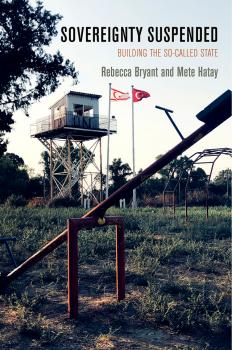ТОП просматриваемых книг сайта:
Социология
Различные книги в жанре Социология, доступные для чтения и скачиванияАннотация
The Transition movement is more than an instrumental strategy to address climate change and fossil fuel shortage. It is a collective form of life. Against the tendency to reduce social movements to mission statements and policy solutions, this book insists on de-strategising the development of Transition. It argues that the flourishing of its distinctive culture is open to both uncertainty and paradox, and resistant to prediction and mapping. Everything Gardens and Other Stories focuses instead on the body as the site where politics begins, engaging with the disquiets and anxieties that instigate the development of Transition practices: from Inner Transition, to food and currency activism, down to the REconomy project. Borne out of a sociologist’s accompaniment of Transition in Totnes, Everything Gardens and Other Stories inaugurates a new mode of accessing the everyday politics and ethical dilemmas that surface in the process of cultural innovation.
Аннотация
Poverty, and calls to end it, date back centuries. Even in prosperous modern times, despite the huge transformation of society, poverty has persisted. This book looks back at the struggle to end poverty and asks if it is worth it.
Аннотация
In a moment of rising authoritarianism, climate crisis, and ever more exploitative forms of neoliberal capitalism, there is a compelling and urgent need for radical paradigms of thought and action. Through interviews with key revolutionary scholars, Bhandar and Ziadah present a thorough discussion of how anti-racist, anti-capitalist feminisms are crucial to building effective political coalitions. Collectively, these interviews with leading scholars including Angela Y. Davis, Silvia Federici, and many others, trace the ways in which black, indigenous, post-colonial and Marxian feminisms have created new ways of seeing, new theoretical frameworks for analysing political problems, and new ways of relating to one another. Focusing on migration, neo-imperial militarism, the state, the prison industrial complex, social reproduction and many other pressing themes, the range of feminisms traversed in this volume show how freedom requires revolutionary transformation in the organisation of the economy, social relations, political structures, and our psychic and symbolic worlds. The interviews include Avtar Brah, Gail Lewis and Vron Ware on Diaspora, Migration and Empire. Himani Bannerji, Gary Kinsman, Leanne Betasamosake Simpson, and Silvia Federici on Colonialism, Capitalism, and Resistance. Ruth Wilson Gilmore, Avery F. Gordon and Angela Y. Davis on Abolition Feminism.










